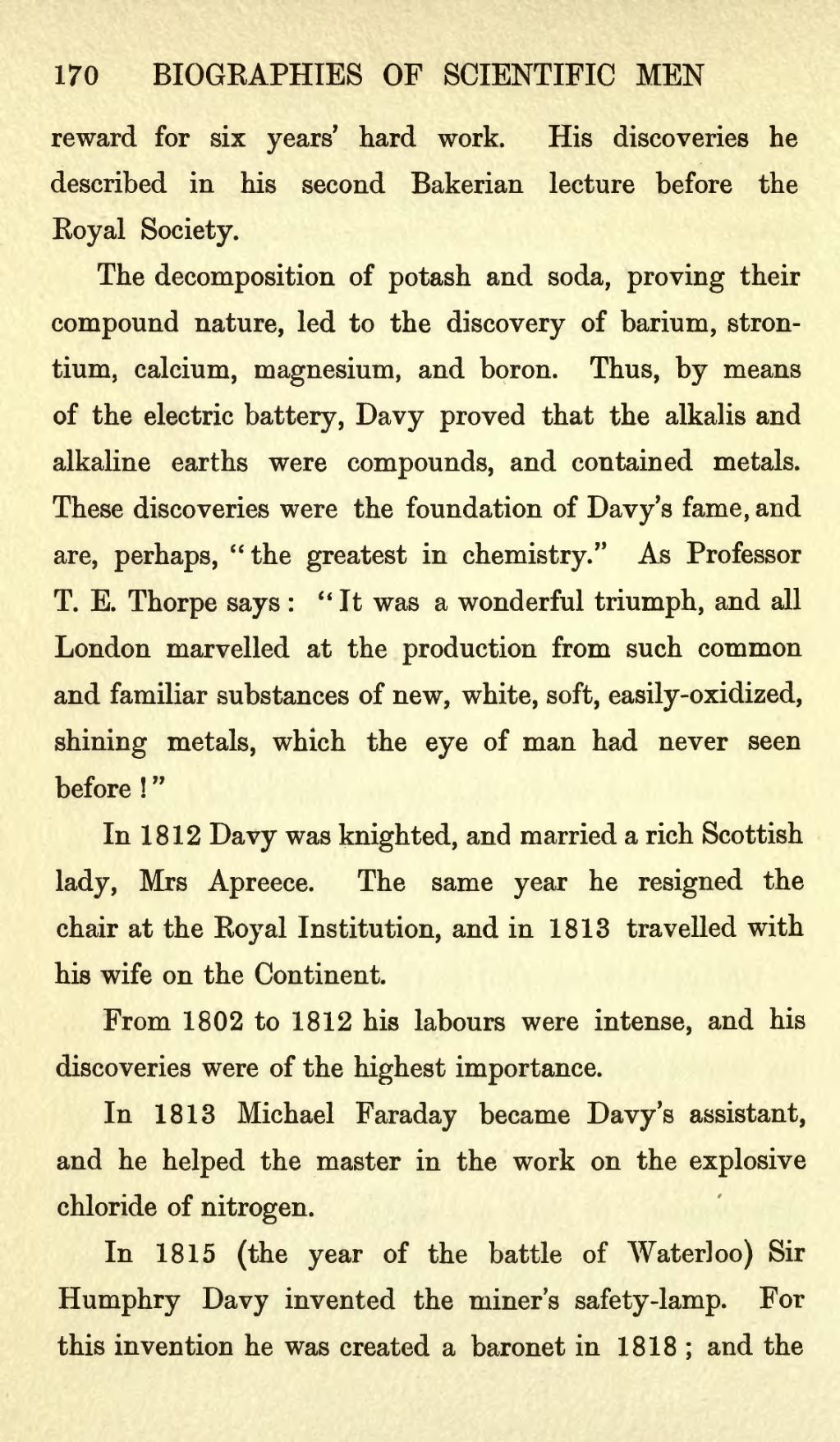reward for six years' hard work. His discoveries he described in his second Bakerian lecture before the Royal Society.
The decomposition of potash and soda, proving their compound nature, led to the discovery of barium, strontium, calcium, magnesium, and boron. Thus, by means of the electric battery, Davy proved that the alkalis and alkaline earths were compounds, and contained metals. These discoveries were the foundation of Davy's fame, and are, perhaps, "the greatest in chemistry." As Professor T. E. Thorpe says: "It was a wonderful triumph, and all London marvelled at the production from such common and familiar substances of new, white, soft, easily-oxidized, shining metals, which the eye of man had never seen before!"
In 1812 Davy was knighted, and married a rich Scottish lady, Mrs Apreece. The same year he resigned the chair at the Royal Institution, and in 1813 travelled with his wife on the Continent.
From 1802 to 1812 his labours were intense, and his discoveries were of the highest importance.
In 1813 Michael Faraday became Davy's assistant, and he helped the master in the work on the explosive chloride of nitrogen.
In 1815 (the year of the battle of Waterloo) Sir Humphry Davy invented the miner's safety-lamp. For this invention he was created a baronet in 1818; and the
